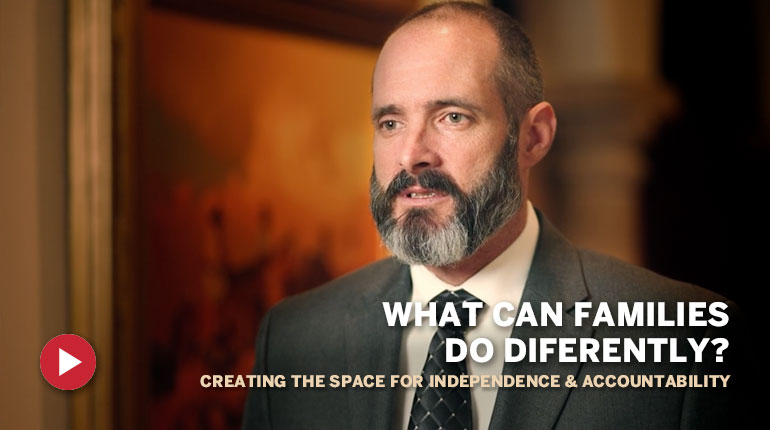What Can Families Do Differently? Insights from the Burning Tree Ranch Team
Video Summary:
This video features insights from some of the key staff members at Burning Tree Ranch, including Brook McKenzie (Chief Operating Officer), Meghan Bohlman (Clinical Director), and Jesse Earwood (Executive Director). They discuss how families can best support their loved ones throughout addiction treatment in order to achieve the best recovery outcomes, particularly for chronic relapsers.
Having treated advanced, complex addiction at Burning Tree Ranch since 1999, we know it’s important for families to maintain a supportive but distant stance during treatment. The space this creates allows clients to develop the independence they need, to face challenges, and to build meaningful connections within the treatment community.
One specific way we do things differently at Burning Tree Ranch is by addressing enabling behaviors in the family that interfere with their loved ones’ ability to fully engage in treatment.
We encourage families to be willing, open-minded, and honest in their approach to supporting their loved ones in treatment.
Read: Video Transcript
[Video opens with Brook McKenzie, LCDC, Chief Operating Officer]
Family members ask me all the time, “What can we do differently to better support our loved ones?” One of the things I get to share with families comes from my own experience. We really like families to participate with us honestly and earnestly, but to do so with a little distance between us.
[Scene changes to Meghan Bohlman, Clinical Director]
In order for the chronic relapser to gain freedom and a life of excellence beyond sobriety requires moving away from them. It requires allowing them the space to be an adult – to make decisions, to experience hard feelings and hard processes.
[Scene changes to Jesse Earwood, Executive Director]
I don’t think most families can tell when they’re enabling versus when they’re helping. You know, they mean well the entire time and they do love their loved one. I believe that they have to establish a new understanding of what love looks like and what help is.
[Re-enter Brook McKenzie]
While the loved one is in treatment at Burning Tree Ranch, it’s imperative for us to develop a deep relationship with them, and allow them to develop a deep relationship with the community. Any time they place the reliance upon the family, the enabler, or the system outside of treatment, it threatens the opportunity to experience a deep and meaningful recovery.
[Re-enter Meghan Bohlman]
A family will begin to know when they’re enabling versus when they’re helping, I believe, based on how it feels to them. Enabling helps them feel better. Watching somebody struggle is very difficult for a family member.
[Re-enter Jesse Earwood]
For family members that are in a lot of pain right now, what I would tell you is that there is hope. I always want to make sure that a family knows that as long as an individual is alive, there is hope that they can get sober.
[Re-enter Brook McKenzie]
I think more than anything what I want every family to know is that there’s a new life that waits for them. It won’t be easy to get there, but we’ll take you by the hand and guide you every step of the way. If you’re willing, open-minded, and honest enough, we believe that you and your loved one can have a brand new experience, and achieve your own life of excellence beyond sobriety.





